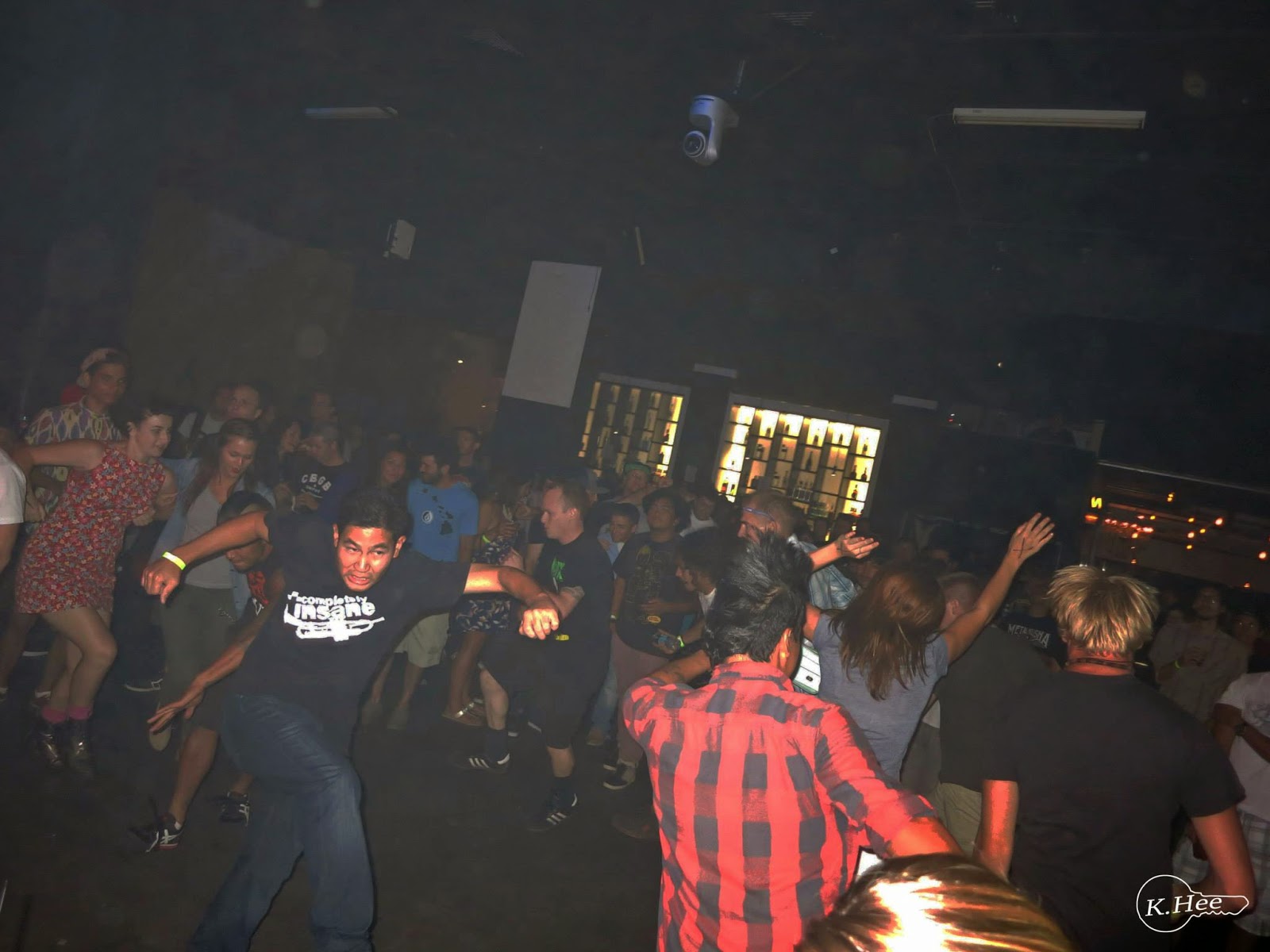“Ladies and
gentlemen, there it is- The Bronx is burning”. Although it isn’t quite clear to
what extent Howard Cosell meant this statement both literally or
metaphorically, the themes of fire and re-birth from ashes are ones that are prevalent,
reoccurring, and relevant throughout hip-hop’s existence. From the culture’s
beginnings in the ska and reggae of Jamaica, to its fostering of the four “pillars”,
hip-hop has always been about revolution as well as revolution—the kindling
that sets consciousness alight and blazes the way towards brighter futures. In
all of this movement, the youth are the primary fire-starters: demolishing,
cleansing, bringing heat and attention, daring society to extinguish their
collective voice…it just takes the right fuel for them to realize it.
 |
| Logo for the "Youth, Roots, & Justice" collaborative project between 808 Urban, Youth Speaks Hawai'i, and the HSCADV |
 |
| Local ska band, Black Square |
First and
foremost, hip-hop finds itself rooted in reggae, which was birthed from ska
music—which, in turn, possesses a rich history which seems to stem from the
very origins of Jamaica. The definition of “ska” and is widely debated among
many musicians and locations. However, the most largely-agreed upon
characteristic/biggest distinguisher of ska music lies in its beat. The ska
sound is characterized by “…a drum accent on the ‘2’ and ‘4’ of a measure, and
has either guitar, keys, or horns hitting the ‘and’ (also called the offbeat)
and features a climbing bass line”. Today, ska is often thought of as “party
music”, consisting of fast progressions, a prominent horn section, and
head-nodding/skank (ska’s trademark dance style)-worthy beats; but it is often
forgotten that ska came into being during slavery and class segregation’s rise
in Jamaica—it was an answer back, a showing of blatantly-indirect dissatisfaction
with poor living conditions, strict class and race divisions, poverty, crime,
and the increasing influx of tourism—ska was the people’s music. Its
development came in three, distinct time period-specific “waves”, which swept
different parts of the globe like wildfire, with lyrics tailored to the
adversities and problematic natures unique to the era. As such, regardless of
time passage, it was the youth that would be drawn to the adaptive
characteristic of the sound—flocking to Jamaica’s dance halls to momentarily
forget the harsh, gang-ridden environments they lived in, starting the subsequent
anarchist and punk movements, and in recent times, pondering the growing apathy
and selfishness that surround nationalism, militarization, and digitalization.
 |
| Ska circle at"Less Than Jake"- The Republik |
Although the two are often
considered different genres with separate cultures and exclusive styles, many
aspects of ska were, and are still present in hip-hop: the creation of a dance
form (ska’s skank to hip-hop’s break), experimentation with beats, the use of a sound system as a community
hub, the often conscientious and charged (and consequently
sometimes angry) lyrics…but at their base, this genealogy’s flaming story has
not flickered: whether ska or hip-hop, horns or turntables, this is music by
the people, for the people. It is timelessness, an educational device towards
the literal/metaphorical release the human condition is continually seeking…it
is liberation music, freedom sound. From
nearly identical starts in low-income, gang-influenced catalysts, to the
multiple movements each genre has inspired along the way, it might be argued
that there is no better predecessor to hip-hop than ska.
 |
| B-Boy circle at "Trilogy"- Fresh Cafe |
That said, it all comes back to the
fireballs of power and intuition that the next generation hold in their palms,
and what it is the youth choose to do with the potential and strength they
naturally embody…and it’s been proven time and time again, that all the youth
really want is to make their mark, to be heard, to show the world that we are
here and we want to make a difference. In the words of the late Maya Angelou, “I think a number of the leaders are,
whether you like it or not, in the hip-hop generation. And when they understand
enough, they'll do wonders. I count on them.”
 |
| DJs Jimmy Taco, Shift, and Packo |
 |
| Jamaican sound system |
 |
| Local hip-hip group, the Super Groupers |







No comments:
Post a Comment